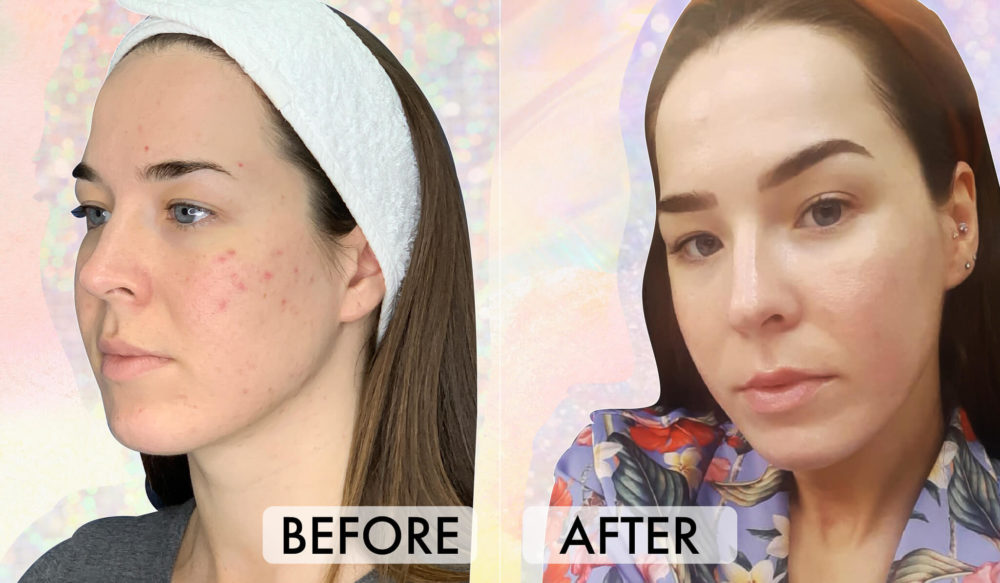Do You Know Skincare As Well As You Think You Do?
 via Giphy
via Giphy
The world of beauty is a never-ending universe of insane information, crazy skin facts, amazing products, and some hella confusing ingredients and techniques. No matter how much you think you might know about beauty, there’s always something new to learn, trust us! Today, we’re putting your beauty knowledge to the test with a quick pop-quiz. Are you a beauty pro or a beauty novice?
Hyaluronic acid is…
Hyaluronic acid might sound kind of scary, but it’s actually a naturally occurring polymer that is extremely hydrating and the secret to plump, hydrated skin. Hyaluronic acid can hold up to 1,000 times its weight in water, which means it’s the bomb for hydration, and key to plumping and filling the appearance of fine lines. It’s also the ingredient in fillers like Juvéderm and Restylane. Check out why hyaluronic acid is amazing and how to incorporate it into your skincare routine here.
Retinol should only be used after age 30
While retinol is known as an amazing anti-aging ingredient, that doesn’t mean it should be reserved for later down line. You can begin using retinol in your 20s as an amazing preventative method for keeping fine lines at bay. Retinol is also amazing for tightening pores and keeping pores clear and can also soften the appearance of acne scars. However, as it’s such a strong active ingredient, you need to carefully introduce it into your skincare routine. Find out how to use it in your routine and our fave products here.
Your skin pH is naturally…
To maintain a healthy skin barrier, your skin should maintain a pH of roughly 4.7, which is slightly acidic on the pH scale. The pH scale runs from 0 (the most acidic) to 14 (the most alkaline) with number 7 being considered neutral. If your skin becomes too alkaline, it can become sensitive, dry and it could even increase signs of aging. The British Journal of Dermatology showed that women who have high alkaline levels had more fine lines, crow’s feet, and were prone to skin damage. Similarly, if your skin is too acidic, it’s likely to break out and be red and sensitive. Find out how to keep your skin pH levels balanced here.
Which mineral is used in natural sunscreens to protect against UV rays?
Both minerals have some pretty cool properties and while malachite is a gorgeous crystal primarily used for its calming and detoxifying properties, it doesn’t protect you from the sun. Zinc is our go-to mineral for shielding against harmful UVA and UVB rays, and it’s a great choice for anyone with sensitive, acne-prone or irritated skin. Zinc is also amazing in skincare products for helping to soothe breakouts, balance oil production and protect the skin from aging free radical damage. Find out more about zinc and some of our fave zinc-infused products here.
Posts You'll Love:
What is dimethicone
Dimethicone is one of the most commonly used ingredients in skincare – a silicone oil that helps smooth skin and soften the appearance of pores and fine lines. Dimethicone is also used to treat dry skin and soothe mild irritations like eczema, creating a protective barrier that helps skin heal faster. Find out more about how dimethicone works, and one of our fave dimethicone primers here.
What should you apply first?
The correct order to layer your skincare is one of the most common topics we’re asked about on the blog. The answer is to start with the most lightweight products, finishing with the heaviest product. To answer this question, essences are more watery and ‘thinner’ than serums, and therefore should be applied after your toner and before your serum. In fact, if our skin is feeling dry, sometimes we skip toner all together and just pat in a couple of hydrating layers of essence instead.
CBD products could get you high
The antioxidant-rich and anti-inflammatory properties of CBD help relieve acne, rosacea, eczema, and psoriasis while serving up a serious dose of moisture. However, CBD (cannabidiol) cannot get you high as it doesn’t have brain-altering properties like tetrahydrocannabinol (THC), which is the second compound in cannabis plants, which is what will make you feel high! Find out more about CBD benefits for your skin here.
What did you guys score? Are you a skincare wizard or do you still have some reading to do? Let us know in the comments below!























Leave a comment